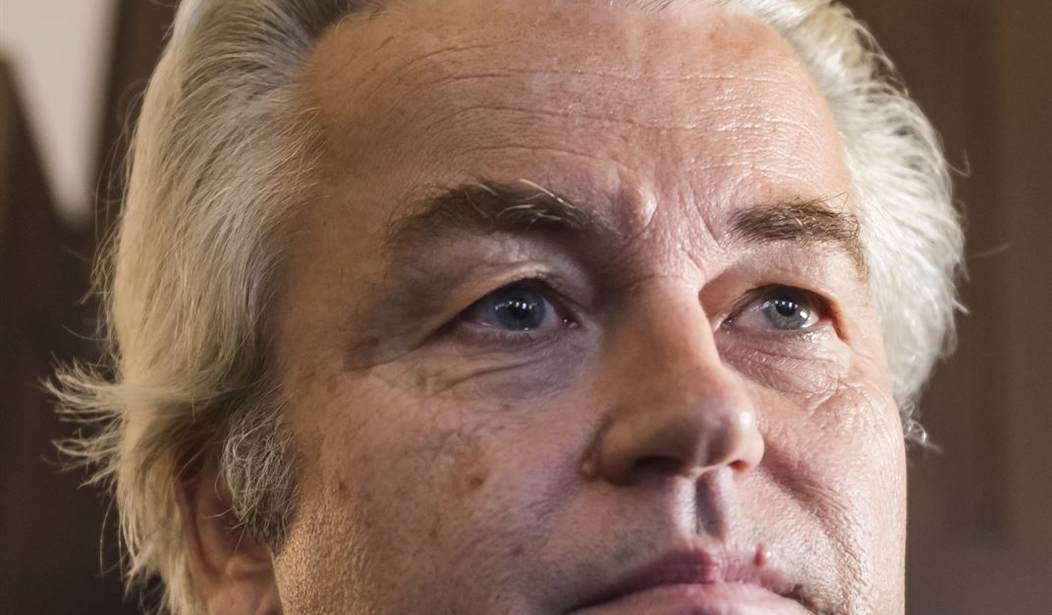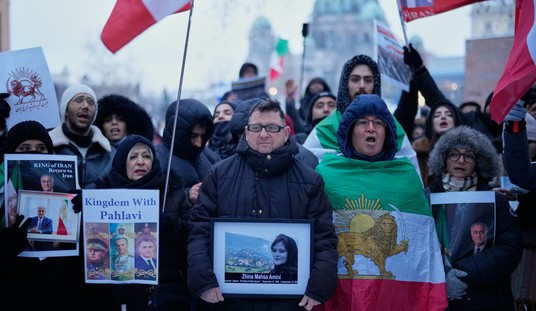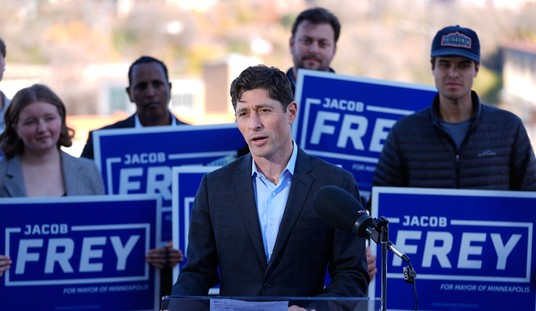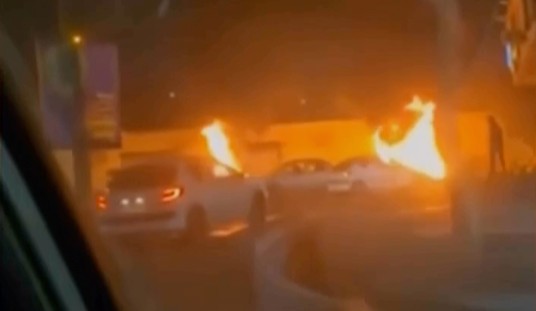At the beginning of June, I told you all how 'far-right' Dutch politician Geert Wilders, who'd forfeited his right to be prime minister in order to get a coalition government formed, subsequently blew up the government that eventually did.
At the time, The Guardian sneered that Wilders wanted power while having no idea how to govern once he got it.
Earlier this month, Geert Wilders decided he had had enough. “No signature for our asylum plans. No changes to the coalition agreement. The PVV is leaving the coalition,” he posted on X. After 11 months, he was withdrawing support for the Dutch prime minister Dick Schoof’s rightwing cabinet, forcing the Netherlands back to the polls.
The decision put an end to Wilders’ far-right Freedom party’s (PVV) first spell in power. Following an unexpected victory in the 2023 elections, the PVV joined a government for the first time in its 18-year history – alongside the conservative-liberal People’s Party for Freedom and Democracy (VVD), the centrist New Social Contract (NSC), and the agrarian-populist Farmer–Citizen Movement (BBB) – although Wilders’s coalition partners did not let him become prime minister. But the promise to drastically reduce immigration and implement a strict asylum policy proved difficult to deliver due to numerous constitutional and legal restrictions.
The Netherlands now faces a familiar question: What is the 61-year-old politician trying to achieve – and how?
You know, they sniffed, Wilders' Freedom Party (PVV) was just 'a fairly typical radical rightwing populist party,' which now had proven its unsuitability for office as far as The Grauniad was concerned. The PVV should thereby be relegated to the interesting, mildly alarming but flash-in-the-pan dustbin of history, and the end of the Wilders experiment was welcome relief.
What was missing from their dismissive post-mortem was the simple fact that the PVV hadn't had any part in the governance of the Netherlands at all. Once the coalition partners formed their clique, they did what every other mainstream, losing European coalition partners have done over the past two years - work to throw a firewall between the winner or large second-place finishers and the actual government in action.
This happened with the PVV. None of what they were elected to do - with such hot button issues as immigration, EU diktats, and fiscal policy - came to pass thanks to a Dutch version of the cordon sanitaire being thrown around their members.
...Since the conception of the coalition on the back of the PVV’s major electoral win, though, the other parties went out of their way to “contain” the party and “protect the rule of law”. That meant most of its proposals were swept aside.
Speculation at the time leaned very much along the Grauniad's line of thinking - that this was what seemed to be an act of pique on Wilders' part and would be the end of him. Analysts were already sizing up the traditional party rivals who might unseat him.
...However, the gap to his nearest rivals has narrowed, with the left-wing Green/Left party of former European Commission vice-president Frans Timmermans following close behind.
The liberal VVD party, a traditional powerhouse in Dutch politics, are also running near the top two, meaning any election would likely be closely fought.
There were indications that many areas were just delighted to see the back of the fiery Dutchman.
As Geert Wilders brings down the coalition, Amsterdam breathes a sigh of relief
...The coalition’s collapse came after the Dutch government refused to heed Wilders’ demands for a draconian asylum plan, which included border troops and a halt to new refugee accommodation. Upon being refused, he walked. The coalition had always been fragile – prime minister Dick Schoof, appointed last July to steady the ship, resigned shortly after.
Recent polls have placed the PVV at second or third place, which is normally enough to secure a spot around the coalition table. But not this time: though Wilders continues to command support outside major cities, Dutch politicians are troubled by his unreliability. So he has returned to the role that suits him best: outsider in chief.
Javastraat was once a working-class area full of Turkish bakeries and North African grocers but is now also home to minimalist cafés serving iced lattes. A barista sums up the mood with typical Dutch bluntness. “Wilders is a toddler and now we all have to clean up his mess,” he says. Relief, mingled with disbelief, defined the day: relief that the coalition has finally crumbled and disbelief that it lasted this long.
It's been two months since the government's collapse, and it seems that the predicted collapse of Wilders and support for the PVV may have been premature fever dreams on the part of those who just want these damn pesky populists gone.
For his part, Wilders has continued throwing the rhetorical bombs at his European Union counterparts with what seems like particular delight.
Witness this wildly popular broadside he landed on the elfen Emmanuel Macron of France after last week's shocking announcement.
Dutch politician Geert Wilders mocks France's decision to recognize Palestinian state
"Good luck, Emmanuel Macron and France! Happy suicide!" he addressed to the French leader.
Dutch politician Geert Wilders criticized and mocked France's decision to recognize a Palestinian state in a post on X/Twitter on Friday.
Here will be the new Palestinian State.
— Geert Wilders (@geertwilderspvv) July 25, 2025
Big parts of France are already islamic anyway.
Good luck @EmmanuelMacron and France! Happy suicide!
The Netherlands will close its borders immediately. pic.twitter.com/zRUYxhUOj5
Hawt DAWG.
That was guaranteed to leave le booboo.
Wilders' lack of proper circumspection doesn't seem to have hurt the PVV's chances at all so far heading into October's snap election.
Wilders’ Far-Right Party Projected to Win Dutch Election in Poll
Dutch far-right politician Geert Wilders’ Freedom Party (PVV) is projected to be the biggest in the October parliamentary election, a July poll said.
The Freedom Party is expected to receive 27 out of 150 seats, according to a survey conducted by Ipsos I&O Research released on Wednesday.
Wilders has every intention of claiming the prime minister's chair should he prevail in October, but there are already threats of the obstructive nature of coalition building that forced this election to begin with.
...However, the leader of the Christian-Democrats, Henri Bontenbal is emerging as a potential prime minister as his party catches up, according to the poll. The premier in the Netherlands needs to secure the backing of a majority, often in a coalition, which the far right is unlikely to be able to cobble together for Wilders.
Wilders' party will simply have to pick up more seats if it wishes ever to prevail and actually 'govern.'
He's doing his part reaching out to all segments of the Dutch voting public, though. I mean, who knew he was a gamer?
...But with three months left of the race to run, the shock-haired populist – infamous for policies such as his call to ban the Koran, is unapologetically hooked on his Nintendo Switch.
Known for his fierce rhetoric on X, Mr Wilders has shown his softer side by sharing how he uses video games to relax after a long day berating his rivals on social media.
“Ok enough politics for today. Back to Mario,” he posted on July 29, alongside an AI-generated image of himself racing as the eponymous Italian-American plumber.
Ok enough politics for today.
— Geert Wilders (@geertwilderspvv) July 29, 2025
Back to Mario.#Mario #MarioKartWorld pic.twitter.com/2ENkZBY6aB
Not to mention a Donald Duck and Amy Winehouse fan who owns two cats.
What a monster.
He might have a chance this time.








